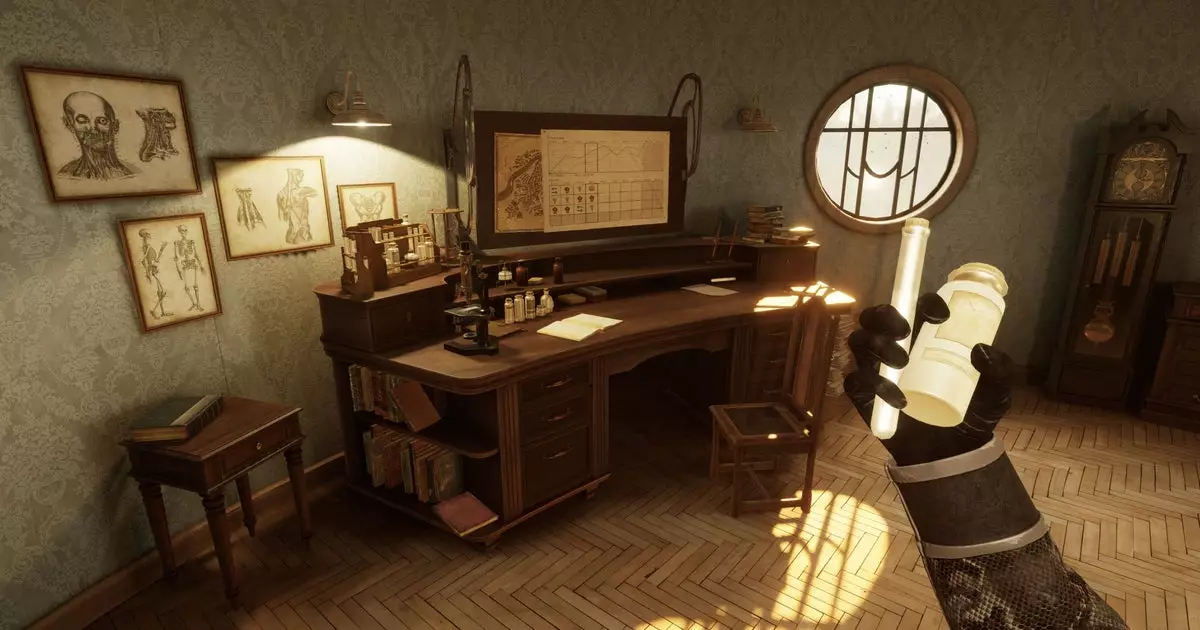The intersection of video games and narrative complexity often yields fascinating results, particularly when developers bravely delve into themes of mortality, morality, and societal collapse. Ice Pick Lodge, the creators of the cult classic *Pathologic*, are making strides towards expanding this exploration with their upcoming title *Pathologic 3*. The anticipation surrounding this sequel is palpable, promising new gameplay mechanics and enriched narrative experiences that build on the heavy legacy of its predecessors.
One of the most intriguing aspects of *Pathologic 3* is its proposed time-travel mechanic. This feature sets it apart from typical survival sims, allowing players to revisit critical decisions that shape the community they inhabit. Unlike conventional time travel that leans on fantasy or science fiction tropes, this system appears to tap into a more philosophical realm, reminiscent of Rashomon—a narrative style that presents various perspectives on the same events. This technique introduces notable complexity, giving players the ability to alter the course of their interactions and witness the immediate repercussions of their choices on the lives of virtual townsfolk.
While retaining the game’s signature time constraints—only twelve days to intervene in a town besieged by plague—the ability to alter past decisions adds layers of strategy and reflection to narrative engagement. This is a significant evolution from the original gameplay mechanics that confined players to linear progressions. The promise of a more dynamic storytelling approach may resonate deeply with fans who appreciate the intricacies of narrative design alongside their gameplay.
At the heart of *Pathologic 3* is the character known as the Bachelor, a role echoing medical professionals’ ethical dilemmas and societal responsibilities amid crisis. Players will assume the mantle of this doctor, tasked with enforcing quarantines and mobilizing patrols. This representation expands the thematic depth and invites contemplation about authority and public health during an epidemic.
The Bachelor’s ability to utilize scientific methods—like employing microscopes for pathogen research—signals a shift in gameplay from merely surviving a harsh environment to actively engaging with the mechanics of disease management. This aligns well with contemporary discourse on health crises and the responsibilities of scientists and policymakers, adding a level of realism that can stimulate deeper player investment in the narrative.
Beyond navigating the psychological nuances of a plague-stricken town, *Pathologic 3* appears to merge elements of resource management and survival strategy. Through the implementation of quarantines and patrols, players engage in tactical decision-making, balancing their character’s immediate needs with the broader implications of their actions on the community’s fate. This dual focus on personal survival and societal impact feels relevant, especially in an era marked by real-world health crises that mirror the announced game’s themes.
The richness of these management mechanics promises added replayability, as players can explore alternative strategies based on their past experiences—especially when coupled with the new time-manipulation feature. The possibility of reshaping events gives players a reason to dive back into the game, experimenting with different paths and outcomes—a powerful hook for enthusiasts of intricate gameplay.
While *Pathologic 2* had its share of criticisms, particularly relating to punishing survival mechanics, subsequent updates showcased the developers’ commitment to refining player experience. As noted by various players and critics, especially those who explored the game beyond initial impressions, there exists a cult following that cherishes its audacious narrative style and atmospheric storytelling.
Looking towards the future with *Pathologic 3*, fans are left with a blend of excitement and trepidation. Will this third installment live up to the legacy of its predecessors while offering new dimensions of gameplay? Can it bridge the often-divergent preferences of hardcore fans seeking depth and new players yearning for approachable mechanics?
The upcoming title is more than just an additional chapter in the Pathologic series; it represents an evolution of storytelling within interactive media, blending philosophical inquiry with survival gameplay. As we anticipate its release, one can only hope that Ice Pick Lodge continues embracing the paradoxes of life, death, and moral ambiguity that have distinguished the franchise, all while inviting players to reflect more profoundly on their choices and consequences.


Leave a Reply